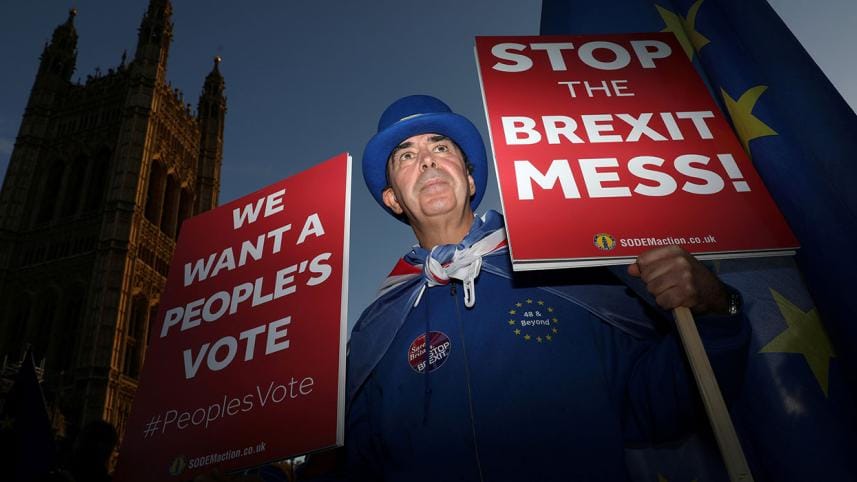EU-UK Brexit deal sees July 2020 decision on keeping Irish border open

The draft accord reached between the EU and Britain envisages a July 2020 decision on what would have to be done to safeguard an open Irish border after the post-Brexit transition runs its course if a new trade deal is not in place, EU sources said.
If not, Britain would have two choices. One would be extending the transition period once beyond December 2020, possibly until the end of 2021. The other would be going into a "bare-bones" customs arrangement that would cover all of the United Kingdom but in which its province of Northern Ireland would be aligned more closely with the EU's customs rules and production standards, three diplomatic sources said in Brussels.
British Prime Minister Theresa May was trying to convince her cabinet on Wednesday to accept the draft EU divorce deal, which her opponents say threatens both her government and the unity of the United Kingdom.
The EU sources said the customs arrangement option included clauses to ensure a "level playing field" by stipulating the UK would have to align itself with EU rules on state aid and competition, environment and labour standards - anathema to hardline Brexiteers in her divided Conservative Party.
Northern Ireland would remain firmly inside the EU's customs union, the sources said, should this emergency fix to maintain the open Irish border ever be triggered in the event of a lack of a separate deal on future trade relations with the EU.
They said ways to exit the customs arrangement were still not finalised and would require more work between negotiators. The EU wants it to be done jointly through a common EU-UK arbitration mechanism - the Joint Committee - that would be created after Brexit.
Under the preferred EU option, should the two sides be unable to agree, they would seek guidance from the bloc's top court, the European Court of Justice (ECJ).
May's government, however, wants to be able to walk away unilaterally. Ending the jurisdiction of the ECJ was a key promise of the "Leave" campaign that won Britain's 2016 referendum on EU membership.
May's cabinet was meeting on Wednesday at the same time as 27 national envoys of EU member states in Brussels. They will look at the proposed deal and wait to see if the British cabinet has approved it.



 For all latest news, follow The Daily Star's Google News channel.
For all latest news, follow The Daily Star's Google News channel.
Comments